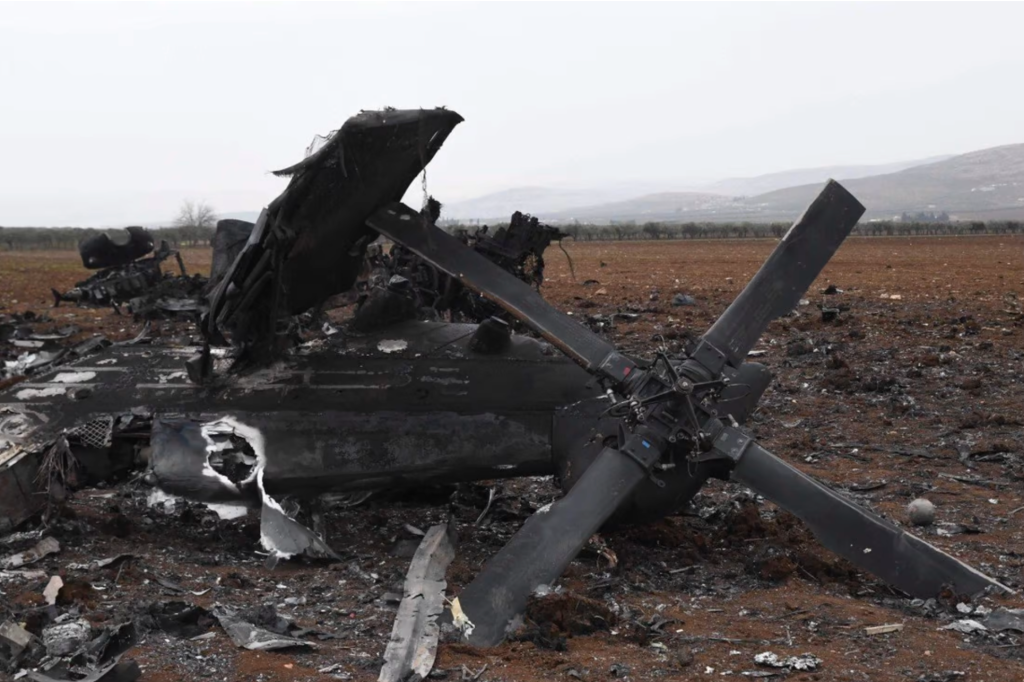Catch up posting which appears a bit incongruous with current events, with a title which was certainly not one I suggested, though in the interests of consistency I have kept it as the title of this post. In any case, a piece commissioned by the Telegraph in the wake of the death of the ISIS leader.
Strange though it sounds, America may come to regret killing the leader of ISIS
There is a danger that in the wake of a leader’s removal, different groups will compete to show they are the most worthy heirs to the crown

The death of Isis leader Abu Ibrahim al-Qurashi is unlikely to be the end of the group. Terrorist group decapitation can sometimes generate a new series of problems as groups fragment, face internal competition and feel the need to prove themselves with even more dramatic attacks. Which raises the long-standing question about the actual value of eliminating terrorist leaders.
Historically, there are very few groups that can be found where the removal of a leader led to the group’s disintegration. The one analysts most frequently point to is the Shining Path in Peru which largely shrank away after its leader was jailed. But it is exceptional with most other cases groups continuing on with someone new in charge.
This is not to say that leaders are not significant. In rising to the top they will establish a web of contacts and plans which will potentially fall apart with their removal. Funding contacts, plans in train, and grand visions will be sharply stopped, and will require picking up by whoever comes next.
But there is an interesting theory which suggests that in fact a more effective way of managing a terrorist leader is to find a way of cutting him off from his organisation. By making it hard for him (or her) to lead will potentially leave the group stymied and blocked. There is some evidence that the protective measures put between Osama bin Laden and al Qaeda actually may have led to group stasis.
Hidden in his compound in Abbotabad, only able to get messages in and out through a complicated courier system, meant it was very difficult to get rapid decisions passed down. This in turn made it hard to direct a global organisation like al Qaeda but also meant that the organisation had to wait for the leader to answer when they made inquiries to him. And Osama was a hesitant leader who it appears was often blocking plans his fighters were eager to advance. Yet, the method of communications meant it was difficult to debate and discuss.
None of this of course eradicated the group, but it made it much harder to function. And likely played a role in its decline in the late 2010s. The leader who replaced him Ayman al Zawahiri seems equally aloof, but has the additional problem of suffering from a notable lack of charisma, creating a lethal combination for al Qaeda.
A danger in removing leaders is they become martyrs to their cause. But it also potentially creates an internal dynamic within the organisation as various factions vie for the top job. Given terrorist organisations ways of showing off is by launching large scale attacks, this presents a danger that in the wake of a leader’s removal, different groups will push themselves forwards with great violence to show they are the most worthy heirs to the crown.
It is not clear how internally fragmented Isis in Syria and Iraq is these days. The organisation has in recent days launched some notable large-scale incidents, including a mass prison break. While it is hard to link this uptick in activity with the death of the group’s leader, it does suggest a dynamism within the group which is quite menacing.
What is unlikely is that any upward trajectory is going to be stopped with Abu Ibrahim al-Qurashi’s death. Rather, it may be accelerated in an attempt to avenge him, or as different groups seek to push themselves forwards at a moment of flux. Isis in Syria and Iraq will undoubtedly come out of this stronger than it was before.
